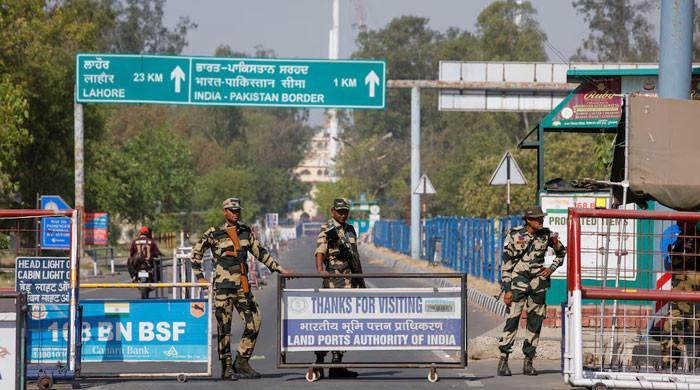- The Indian army official calls for urgent air defense improvements.
- Singh did not reveal how India obtained Intel from China.
- Pakistan said they knew the location of our key vector: official.
New Delhi: China gave Islamabad “live inputs” on the main Indian positions during the fatal conflict in Pakistan with its neighbor in May, the deputy chief of the Indian army said on Friday, calling for urgent improvements to the country’s air defense systems.
Nuclear weapons rivals used missiles, drones and artillery fire during four-day fights-the worst for decades-triggered by an attack in April against Hindu Indian tourists illegally occupied in Jammu-et-Cachemire (IIOJK) that New Delhi blamed in Islamabad, before accepting a ceasefire. Pakistan denied the involvement of the attack.
India fought two opponents during the conflict, Pakistan being the “front front” while China provided “any possible support,” said Lieutenant-General Rahul Singh during a defense industry event in New Delhi.
“When the interviews at the DGMO (Director General of Military Operations) took place, Pakistan … said we know that your vector or so important is ready and that it is ready for action … He obtained live contributions from China,” he said.
However, Singh did not explain how India knew the live contributions of China.
India’s relations with China were tense after a border clash of 2020 which sparked a four -year military deadlock, but tensions began to relax after the countries reached a pact to step back in October.
India had previously said that although Pakistan was closely combined with China, there was no sign of real Beijing aid during the conflict.
Regarding the possibility that China provides satellite images or other information in real time, the Chief of the Defense Staff of India had declared that such images were available commercially and could have been bought in China or elsewhere.
Pakistani officials previously rejected allegations to receive active support from China in the conflict.
Beijing, who praised the ceasefire in May, helped Pakistan’s difficulty in difficulty with investments and financial support since 2013.
The Chinese Foreign Minister also promised support in Pakistan to protect his national sovereignty and territorial integrity when he met his Pakistani counterpart a few days after the ceasefire.
Meanwhile, the chief of the Indian assistant army also alleged that Turkiye also provided key support to Pakistan during the fighting, equipping it with Bayraktar and “many other” drones and “trained individuals”.
Ankara has close ties with Islamabad and had expressed her solidarity during the confrontation, which prompted the Indians to boycott, from Turkish coffee to the country’s vacation.
The Turkish Defense Ministry did not immediately respond to a Reuters Comment request.
The conflict
Last month, Pakistan and India embarked on the military confrontation launched by the Attack on Aprilgam from April to IIOJK.
In response to the Indian aggression, the Armed Forces of Pakistan launched a large-scale military reprisal action, called “Operation Bunyan-UM-Marsoos”, and has targeted several Indian military targets in several regions.
Pakistan has shot down its six fighter planes, including three gusts and dozens of drones. After at least 87 hours, the war between the two nuclear nations ended on May 10 with a cease-fire agreement negotiated by the United States.
The ceasefire was announced for the first time by US President Donald Trump on social networks after Washington had interviews with both parties, but India has deferred Trump’s claims that this results from his intervention and threats to break up trade negotiations.
However, Pakistan recognized Trump’s efforts and officially recommended it for the Nobel Peace Prize 2026, citing its role in the speed of tensions between Pakistan and India last month.




